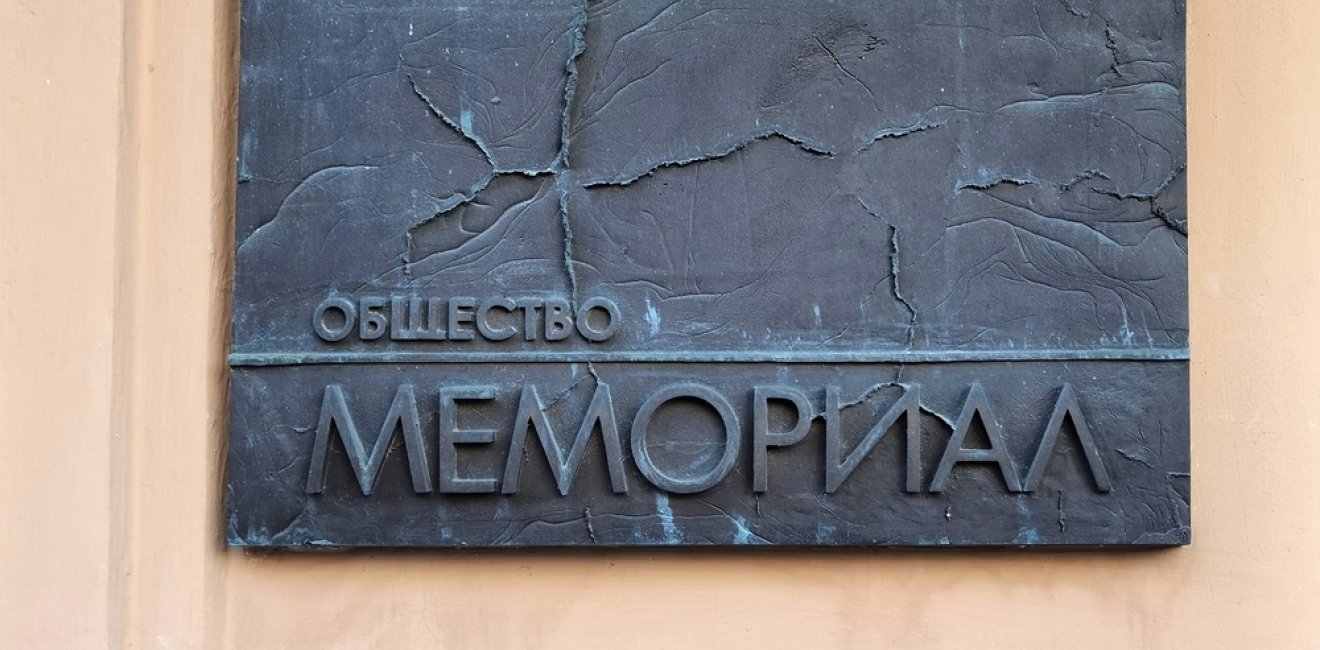
A blog of the Kennan Institute
BY SERGEY PARKHOMENKO
Late last year the Russian Supreme Court ruled that International Memorial, a nongovernmental organization of national memory and Russia’s oldest and most prominent civil society organization, had to close. In an insulting wording, the court ordered the liquidation of Memorial, citing the need to protect “the right of citizens to access reliable information” and prevent the “creation of a false image of the USSR.”
The ruling has not yet entered into force. Memorial has used its right to file a formal appeal, which Russia’s highest court of appeal, the Presidium of the Supreme Court, is expected to consider at the end of February.
It is tempting to explain the haste demonstrated by the government-controlled court in its war on Memorial by some irrational hatred that the former Soviet KGB officers now in power in Russia feel for human rights advocates. Vladimir Putin himself has emphasized on more than one occasion how highly he values the legacy of the Soviet special services tasked with domestic intelligence and the suppression of dissent. For almost a century, they safeguarded the all-encompassing power of the communist regime, and now they underpin the most recent edition of Russian authoritarianism.
Nikolai Patrushev, who is the secretary of the Russian Security Council and thus the official who coordinates the agency in charge of the “besieged fortress” strategy, the backbone of the current Russian political course, once proudly referred to the former KGB and today’s FSB officers as Russia’s “new nobility.”
There is something appealing about an explanation according to which Memorial as the community of historians of Stalinist repressions falls victim to the successors of the very Stalinist institutions the historians have been investigating for over thirty years.
However, Stalinism in today’s Russia has nothing to do with dynasty or class. In fact, one can cite less emotional and more rational reasons as an explanation for the hatred that Russian authorities feel for Memorial. For at least a decade, Putin’s circle of siloviki has regarded Memorial as the source of direct political threat.
Over the course of many years, Memorial’s preeminent role was as a research and data-collecting institution. The principal focal point has been Memorial’s legendary archive, which constitutes a vast collection of judicial and investigative documents from the time of mass political repression in the Soviet Union. This archive is the result of the collective effort of regional activist groups that gathered information on repression for the so-called Regional Books of Memory. Memorial organized and financed the publication of these books in almost all Russian regions in the 1990s and 2000s. During that time, the archive of documents was also supplemented with an impressive collection of oral history accounts, the victims’ audio- and videotaped testimonies. In addition, Memorial has a collection of material artifacts from the “Gulag civilization”: everyday items, photographs, drawings, and handmade books that were created by people behind bars or in exile.
Memorial succeeded in creating a one-of-a-kind complex for storing these valuable objects: the state-of-the-art equipment installed in the basement of Memorial’s headquarters not only has ensured the safekeeping of its collections but also has kept them “alive,” that is, easily accessible to scholars.
This has been a uniquely rare and valuable feature, for researchers find it extremely hard to gain access to Russian state archives, especially the federal and regional archives of the special services and the Ministry of Interior. Furthermore, after a brief period of openness in the early and mid-1990s, archives in Russia have become increasingly closed off, with a regime of secrecy and tightened restrictions in place. In 2014, at the behest of the FSB, the Russian government extended the secrecy regime for a huge number of archival documents from the mass repression era by another thirty years. On top of that, two years later, many archival collections having to do with the practical aspects of political repressions were declared secret again. These files were assigned the same status as the information on counterintelligence efforts, and disclosure was banned. New legal and procedural restrictions keep being added, and as a result, the only people who can gain access to documents on political repressions in the state archives are the direct descendants of the prosecuted who wish to see the investigative and judicial files of their ancestors, and even their access is spotty.
In this context, the archives of Memorial have been a fortunate exception, but today, after the shameful ruling on liquidation, these archives, like the rest of Memorial’s property, face the threat of confiscation. This threat is very real, even though International Memorial is not the formal owner of the archives. They belong to Moscow Memorial, an organization that is committed to the same mission but is an independent entity without administrative ties to International Memorial. Moscow Memorial is not subject to liquidation and does not yet have the status of a “foreign agent.” However, the team of Memorial fears that authorities will nonetheless declare the archive subject to “nationalization” and that it will be impossible to preserve its status, as there is no independent judiciary in Russia.
Let us note that the “memory war” waged by Putin’s regime enhances the value of the documents from Memorial’s archives and collections. It is especially important that these documents are the paper originals and thus are very tangible. The state propaganda employs historical arguments to promote the newest version of imperial ideology, and historical knowledge becomes the object of political manipulation, time after time. Russian leaders, including President Putin himself, follow the propaganda media and assign the labels of “falsification” and “ideological diversion” to scientific knowledge about even the best-known episodes of Soviet repression. Under these circumstances, an electronic copy of an archival document can be easily declared a fake. But the old-fashioned paper archives of Memorial turn out to be the irreplaceable frontier of resistance to this state policy of enforced memory loss.
The members of the Memorial team now say they will fight for the independence of their archives, and firmly refuse even to discuss their evacuation from Russia, despite the multitude of suggestions voiced on Russian social media over the past few weeks. However, the fate of these archives looks increasingly concerning.
In the meantime, Memorial long ago evolved into a phenomenon that transcends its original mission as a research organization collecting archival materials, documents, testimonies, and memoirs about the era of totalitarian political repression. The image of Memorial as an academic scriptorium where silent archivists dig around in ancient filing cabinets and peer at the yellowing pages of half-forgotten court cases through a magnifying glass could not be further from truth.
In reality, in the early 2010s Memorial gained a solid reputation as the foundational center of civic life in Russia. It never had the standard hierarchical structure of one central office and multiple branches. Since its founding, it has been a complex conglomeration of independent projects and initiatives implemented by groups of activists, who retain a significant degree of autonomy. This structure is flexible and successfully adapts to diverse tasks, so it is not surprising that it has generated a variety of powerful civic innovations and its work has gone far beyond the humble archival work.
Memorial’s office in the Moscow city center quickly became the beating heart of Russian civil society and home to various conferences, debates, workshops, exhibitions, festivals, lectures, and film screenings.
Memorial also brought to life other prominent organizations with their own strong and vibrant activist networks. It is no coincidence that the Human Rights Center Memorial was born here, under the wing of the original Memorial. It undertook the mission of monitoring the human rights situation, registering human rights violations and abuses of power by law enforcement agencies and penal institutions, and creating and updating the register of political prisoners. In so doing it focuses on today’s Russia, rather than on its historical past.
Finally, it is highly symbolic that Memorial was the first civic organization in the country that spoke of Russia’s true intentions vis-à-vis Ukraine after the Revolution of Dignity. It was none other than International Memorial that issued a statement that Russian actions in Crimea and the southeast of Ukraine fell under the definition of aggression as stipulated in the UN General Assembly resolution adopted in 1974.
That is why the first of many organizations in the Memorial ecosystem now labeled “foreign agents” was assigned this offensive label as early as May 2014, when the authorities were still figuring out the practical aspects of enforcing the foreign agent law.
And that is why Memorial became the “enemy of the state” that President Putin and his cronies decided to destroy using such performative and intentionally insulting methods.
The opinions expressed in this article are those solely of the authors and do not reflect the views of the Kennan Institute.
Author

Journalist, publisher, organizer of civic projects

Kennan Institute
After more than 50 years as a vital part of the Wilson Center legacy, the Kennan Institute has become an independent think tank. You can find the current website for the Kennan Institute at kennaninstitute.org. Please look for future announcements about partnership activities between the Wilson Center and the Kennan Institute at Wilson Center Press Room. The Wilson Center is proud of its historic connection to the Kennan Institute and looks forward to supporting its activities as an independent center of knowledge. The Kennan Institute is committed to improving American understanding of Russia, Ukraine, Central Asia, the South Caucasus, and the surrounding region through research and exchange. Read more

Explore More in The Russia File
Browse The Russia File
Chechnya as a Model of Modern Russia

Russia’s Indigenous Communities and the War in Ukraine

Gas and Power in a Changing US–Russia Relationship

